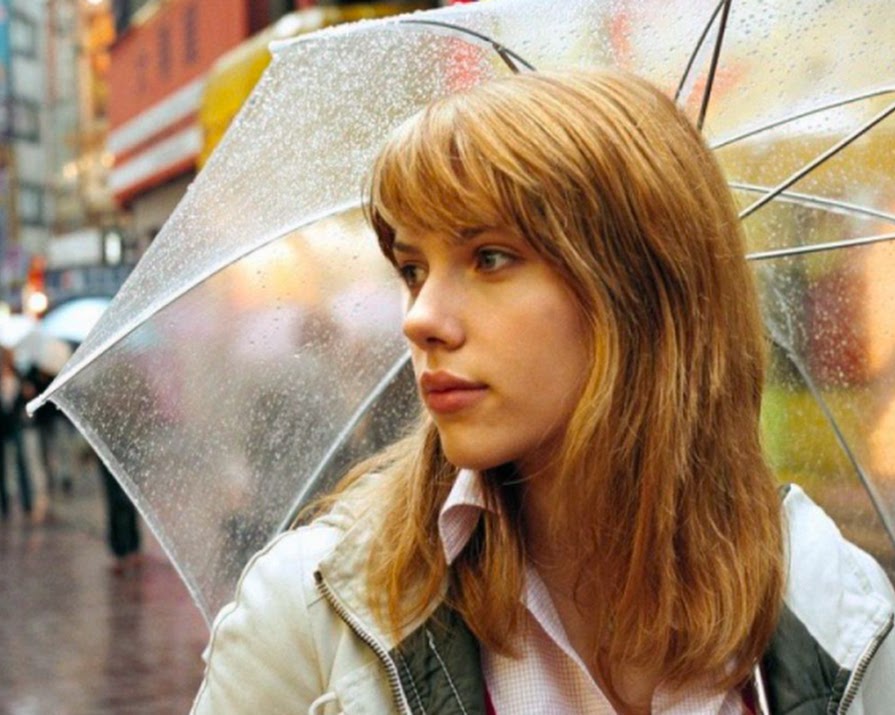
By Amanda Cassidy
18th Jul 2021
18th Jul 2021
Who is demanding the fetishization of young girls anyway?
“When I was working in my early twenties, and even my late teens, I felt that I got somehow typecast as hypersexualised, which I guess at the time seemed OK to everyone,” admitted actress Scarlett Johansson in an interview with The Sun this weekend.
The 36-year-old starred Manny in Manny & Lo at the age of 12, but her big break came when she was just 18 in the film Lost in Translation, alongside Bill Murray.
“Even though it wasn’t part of my own narrative, it was kind of crafted for me by probably a bunch of dudes in the industry,’ the Hollywood actress explained.
Advertisement
When it comes to this type of eroticization of young girls, you don’t have to look far to see how this is perpetuated across films, TV shows, advertisements, online, and in the media.
And it begins shockingly early.
Sexy baby
This week a horrified mother took to social media to criticise a high-street store for selling crop-top pajamas for nine-month-old babies. The set included a pink top with an illustration of a butterfly along with some floral bottoms.
“This is by far not the worst case to use as an example. Poundland is selling a crop top for six to nine months onwards. These are not pyjamas for the comfort of your own home on a six to a nine-month-old baby. Perhaps a vest would cover the midriff but what about on a two-year-old as it goes up to 24 months. Is it just me? I find this really DISGUSTING.”
Elsewhere, Bratz dolls (sold in toy stores) have impossible footwear, hinted-at-cleavage, and coy come-hither glances. Most dolls marketed at my six-year-old are almost always skinny and with a lot of make-up. Training bras for eight-year-olds are a regular feature in our local clothes shops and it is difficult to find t-shirts for my 10-year-old that don’t mention something about being a ‘future WAG’.
Meanwhile, New Look came under pressure for selling a range of high heels starting at size one – about the shoe size of an average eight-year-old – including a pair of £16 dark blue platforms with a 3.5-inch heel.
Advertisement
Lolita
Dressing to look like a sexually available woman as an eight-year-old is problematic. What does it say about a society that grooms children to aspire to be sexy footballer’s wives?
In Japan the disturbing phenomenon has a name – Rorikon – roughly translated as ‘lolita complex’. Specialised shops sell life-size models of girls with breasts at various stages of puberty. Animation porn has high child-like voices and impossibly huge little-girl eyes. Elsewhere, the portrayal of girls as sexually aware is all around us through online content and even cartoons.
The film Mignonnes on Netflix deals with this type of hypersexulisation of girls in modern society. It hit the headlines for a misinterpretation of the poster which caused some to claim the film promoted child pornography. In fact, the film denounces this type of sexualisation of pre-adolescent girls and focuses instead on the male gaze.
But it is too easy to lay blame at men’s feet for this growing-up-too-fast trend. The desire to be perceived as an adult has become successfully commercialised. It’s a marketing ploy.
Mental health
But there is a big distinction between children dressing ‘grown up’ for fun, and retailers producing items of clothing that target children and encourage premature sexualisation.
The effect on young girls’ ideas of body image and ideals has become skewed. Retailers can’t shirk that responsibility. Neither can magazines or TV programmes.
Advertisement
Basing worth on physical criteria is damaging. Children are not small adults. You can’t just shrink adult woman into girl-shapes. But above all, this sexualisation of girls is a social phenomenon. And there isn’t a true male equivalent.
British writer John Berger explained it best: “Men act and women appear. Men look at women. Women watch themselves being looked at”, which means, men look, they are subjects, while women are looked at, they are the objects of male desires and fantasies.
We are disempowered because of the way our bodies look
Respect
This is a dangerous message to send to teenagers. After Nathalie Portman appeared in her first film aged just 13, she said a radio station started a count down until she was ‘legal’ aged 18.
“I felt the need to cover my body and to inhibit my expression and my work in order to send my own message to the world that I’m someone worthy of safety and respect,” she said. “The response to my expression, from small comments about my body to more threatening deliberate statements, served to control my behavior through an environment of sexual terrorism.”
All our lives, we’ve had to politely smile and shrug off the jokes about our breasts, our bums, our legs. But they are hundreds of tiny daily degradations we’ve learned to live with.
Advertisement
We are disempowered because of the way our bodies look – unable to jog after dark or wear something short without wondering if it may attract the wrong sort of attention. All because of the liability of flesh and tissue that strain against skin.
We’ve folded ourselves to fit into these limiting constraints and then doubled down with filters and underwire, impossible heels, corsets and injectables, trying to look pure and young and teeny, and mostly innocent – with smooth faces, skinny waists, carefree curls – back to childhood. Then the circle spins again.
The problem isn’t just about keeping girls being girls. It’s so much more damaging than that. Self-objectification brings many negative psychological factors including disordered eating, anxiety, and depression.
A recent study found that those who looked at a picture of a ten-year-old girl in highly sexualised clothing (short dress, leopard print cardigan) rated her as less intelligent and less moral than those who viewed her in less sexualised clothing. Other research also found that when adult women are depicted in certain clothing, they are seen as less fully human.
Treating young girls as sexually mature before they are is objectifying. It sends a dangerous message with equally with dangerous implications; that they don’t matter, that their worth is based only on appearance and that their sole function is to look pleasing to others through the medium of come-to-bed eyes and 24-inch waists.
Advertisement























